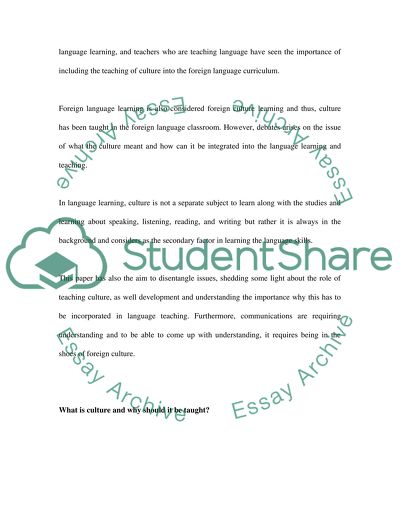Cite this document
(“The Importance of Teaching Culture with the Language Research Paper”, n.d.)
Retrieved from https://studentshare.org/education/1428451-the-importance-of-teaching-culture-with-the
Retrieved from https://studentshare.org/education/1428451-the-importance-of-teaching-culture-with-the
(The Importance of Teaching Culture With the Language Research Paper)
https://studentshare.org/education/1428451-the-importance-of-teaching-culture-with-the.
https://studentshare.org/education/1428451-the-importance-of-teaching-culture-with-the.
“The Importance of Teaching Culture With the Language Research Paper”, n.d. https://studentshare.org/education/1428451-the-importance-of-teaching-culture-with-the.


